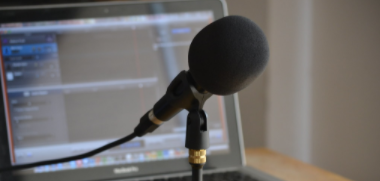
This role has a high level of AI exposure. While some human skills are required, many tasks could be automated or replaced by new technology.
Explore all careersA Music Journalist writes and edits content about music events, concerts, and artist interviews for media, requiring strong communication skills.
Get qualified to work as a Music Journalist with a course recognised across Australia. Speak to a training provider to learn more.





Browse occupations related to Music Journalist



If you're passionate about music and storytelling, pursuing Music Journalist courses in Gisborne could be your next exciting venture. Located in the heart of Victoria, Gisborne offers a vibrant community where you can immerse yourself in your studies while being surrounded by local music events and culture. The available courses are designed for experienced learners, allowing you to build on your prior qualifications and experience. You can choose from a variety of degrees, including the Bachelor of Journalism and the Bachelor of Communication, both of which equip you with essential skills for a successful career in music journalism.
Several prominent training providers in Gisborne can help you achieve your goals in the music journalism field. Expert educators from Monash University offer a dedicated Bachelor of Arts (Journalism) course, which focuses on developing critical thinking and media skills. Alternatively, you can consider Deakin University, where the Bachelor of Communication programme prepares students for various roles within the journalism landscape, including music-related careers.
As you explore Music Journalist courses in Gisborne, it's essential to consider your career trajectory as well. Besides journalism, related job roles such as Music Manager and Music Producer are available to you upon completion of your degree. These positions are integral to the music industry, and gaining knowledge in journalism will undoubtedly enhance your ability to navigate these roles effectively.
The Bachelor courses offered by institutions like RMIT University and The University of Melbourne are deeply comprehensive and designed to prepare students for a dynamic career in music journalism. For aspiring professionals keen on hands-on experience, pursuing a degree such as the Bachelor of Arts (Creative Writing) might also open doors within the industry, blending creativity with critical assessment.
In conclusion, Music Journalist courses in Gisborne provide a fantastic opportunity for those looking to turn their passion for music and writing into a fulfilling career. From training providers like Monash University and Deakin University to career pathways like Audio Visual Technician and Music Tutor, the options are endless. Take the next step in your journey and explore the courses available today!